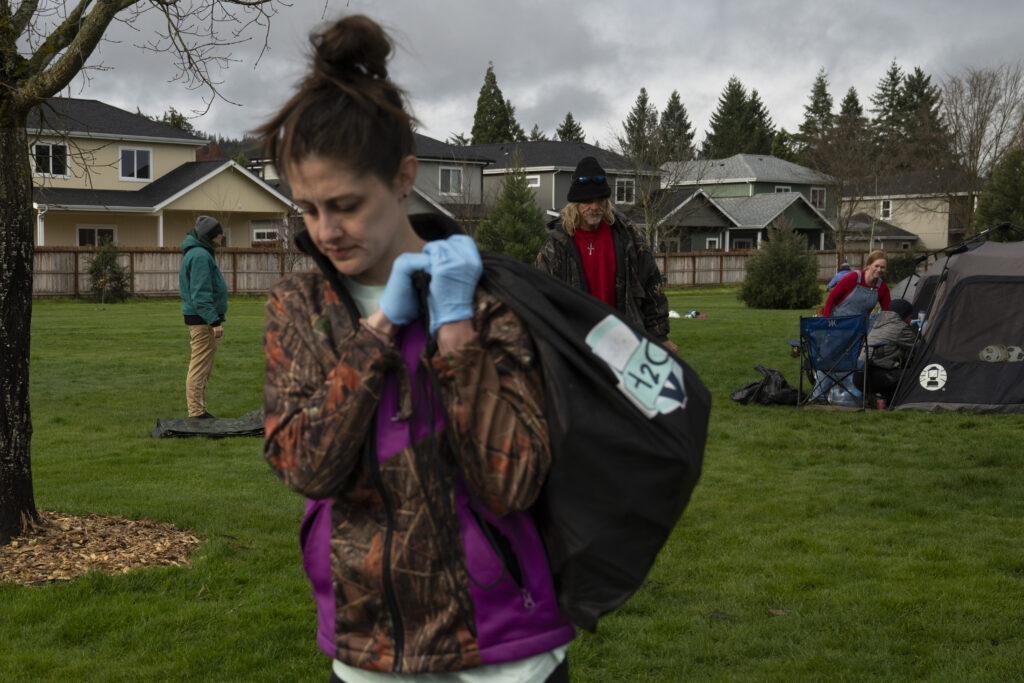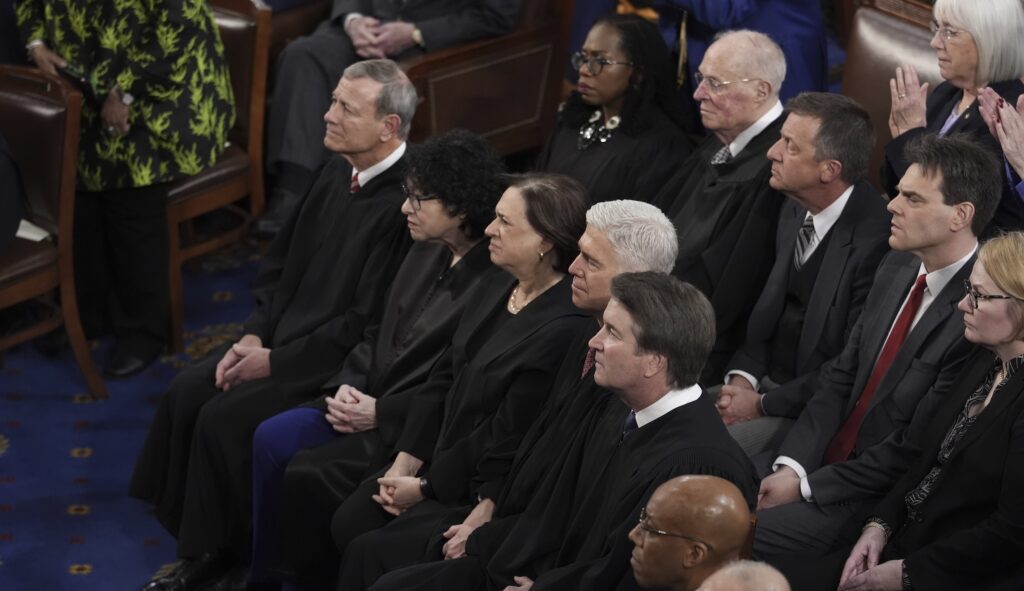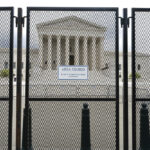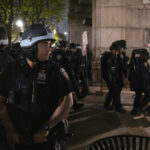
As the nation’s homelessness crisis deepens, the Supreme Court on Monday will weigh a case that has captured the attention of state officials with some of the largest homeless populations.
Originating from the modest city of Grant Pass, Oregon, the case involves fines imposed for violations of its anti-camping ordinance. A pair of homeless people sued the city and convinced lower courts the ordinance was a form of “cruel and unusual” punishment, a decision that state leaders from California to Arizona say has greatly hindered efforts to keep people off of the streets.

The high court’s ultimate decision could give cities the power to regulate homelessness, or greatly inhibit those efforts.
How did this case wind up before the justices?
In September 2022, the U.S. Court of Appeals for the 9th Circuit found the city’s ordinance constituted an Eighth Amendment violation against cruel and unusual punishment, delivering a ruling that hamstrung efforts to combat encampments in Alaska, Arizona, California, Hawaii, Idaho, Montana, Nevada, Oregon and Washington. The case also reinforced a separate 2018 precedent set in Martin v. City of Boise at the 9th Circuit, which found the amendment bars the imposition of criminal penalties for sitting or sleeping outside on homeless people who do not have access to shelter.
“These decisions tie the hands of city officials entirely when dealing with the homeless, and at its best, it causes a lot of confusion,” Goldwater Institute Vice President for Legal Affairs Timothy Sandefur told the Washington Examiner last month.
The Grant Pass ordinances impose a $295 fine for violations, and the fine increases to $537.60 if it is not paid. Following two citations, authorities in Grants Pass can issue an order that bans the individual from city property, and a violation of that order opens the potential for a conviction on criminal trespass charges, which carry penalties of up to 30 days in jail and a $1250 fine.
About 600 homeless residents in Grant Pass stay in tents and makeshift tarp shelters in the city park, saying they have nowhere else to go. The Boise decision held a person could not be punished for being homeless if the “number of homeless persons … exceeds the number of available bed shelters,” setting up essentially a “numerical formula” for determining whether the application was cruel and unusual, according to Sandefur.
Lawyers for Grant Pass say the Boise and Grant Pass decision “have proved practically unworkable” and has “thrust federal courts into the inappropriate role of legislating homelessness policy and yielded a host of complex rules that micromanage local governments on that pressing issue,” according to their Supreme Court brief.
The city contends that the Eighth Amendment regulates cruel and unusual methods of punishment, not the substance of criminal offenses and that punishments like fines and short jail terms do not fall under that description.
The problems plaguing Grant Pass are only a fraction of the overall homelessness crisis. More than 650,000 people experienced homelessness on a single night in January 2023, a 12% uptick from 2022, according to a report from the U.S. Department of Housing and Urban Development.
Washington progressives at odds with state Democratic leaders
Nearly 90 amicus briefs were filed in Gloria Johnson v. Grant Pass, with nearly half of the briefs in support of the Oregon city and the other half in support of Johnson, a homeless woman who is the namesake of the case. At least two prominent Democrats support the Oregon town: California Gov. Gavin Newsom (D) and San Francisco Mayor London Breed (D).

California has invested more than $20 billion since 2019 to help get people off the streets of Los Angeles and San Francisco. From Newsom’s perspective, the Supreme Court now has a chance to “end the costly delays from lawsuits that have plagued our efforts to clear encampments and deliver services to those in need.”
The Golden State governor argues that “rulings from the bench have tied the hands of state and local governments to address this issue,” according to a Jan. 12 statement, which marked a rare acknowledgment by a Democratic lawmaker on how the Republican-appointed Supreme Court majority could hand his state a pivotal favor.
Newsom stands in firm contrast to progressive positions like those including Rep. Alexandria Ocasio-Cortez (D-NY) or Sen. Bernie Sanders (I-VT), two lawmakers who have publicly denounced ordinances existing in cities like Grant Pass.
Sanders and Ocasio-Cortez signed on to a brief with 17 other progressive lawmakers, writing that “punishing human beings for existing when they have nowhere safe to rest is not only unconstitutional, it is also the least effective and most costly response a city can choose.”
The National Homelessness Law Center and the National Coalition for the Homeless, a group of activists who share similar viewpoints as the hard left lawmakers, are planning to rally outside the Supreme Court building on Monday.

How will the justices rule?
Legal experts say the case could come down to whether a majority on the Supreme Court believes the 9th Circuit misconstrued the Establishment Clause because the 9th Circuit court refused to count religious homeless shelters in determining whether there were enough beds available.
“It is wrong to treat religious homeless shelters as inherently suspect instead of as inherently helpful in solving this massive social problem.” said Eric Rassbach, vice president and senior counsel at the Becket Fund for Religious Liberty. Rassbach’s group filed a brief in the case, arguing that the 9th Circuit relied on a test that was overturned in its 2022 decision Kennedy v. Bremerton School District.
The Supreme Court’s majority could also determine cruel and unusual punishment evaluations must be “addressed on a case by case bases and that this numeral formula just doesn’t apply,” Sandefur said, adding he could see a separate opinion stating the Eighth Amendment “also shouldn’t apply to anything other than sentences.”
CLICK HERE TO READ MORE FROM THE WASHINGTON EXAMINER
“They don’t like to decide anything they don’t have to decide, usually, and so I think that’s what the majority is going to say,” Sandefur added.
A decision in the case is expected by the end of June.







